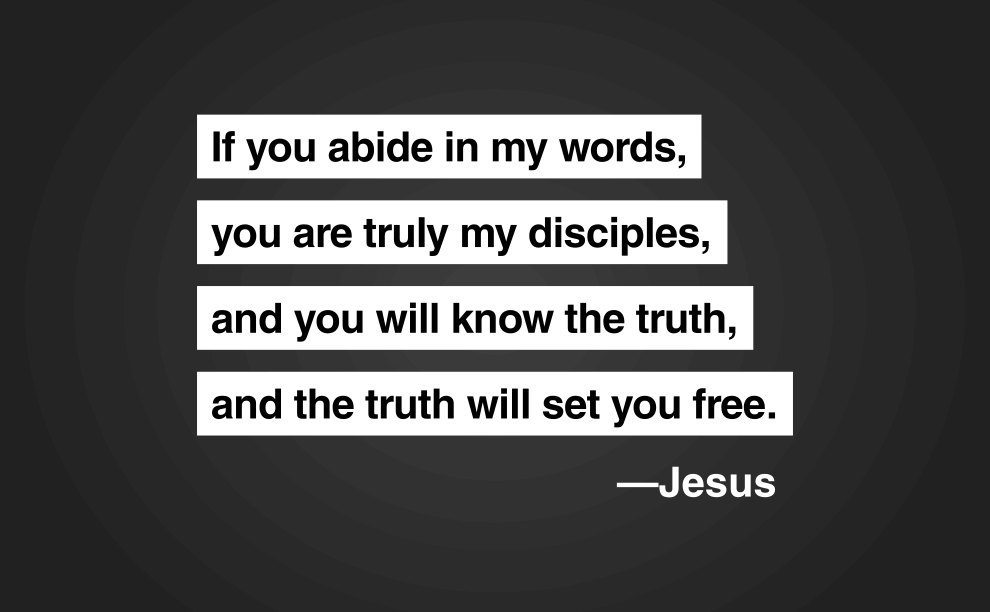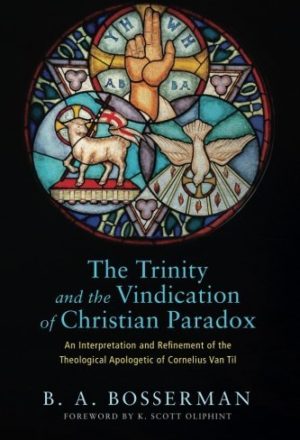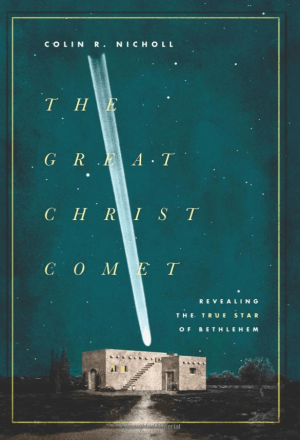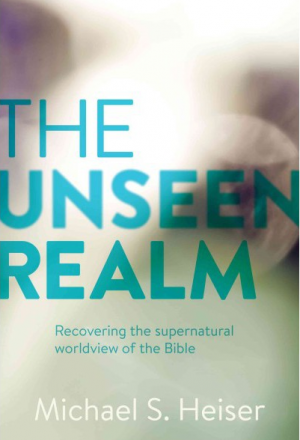The prioritization of subjective truth has buried Truth under a stack of personal beliefs, experiences, and truths. By its definition, subjective truth should be a contradictory idea, and yet it has been used as a bedrock concept for our culture. The flexibility of subjective truth makes it dangerous, for something that is true one year could be deemed untrue in the next; consider how the victim mentality of a few can impact the court system of the United States, or push legislation through the House and Senate. Consider how the misguided truths of Hitler altered the course of Germany. We need Truth to set a firm foundation for our society and for our personal lives, but what is Truth and where does it come from?
A Brief Historical Perspective
Written records suggest that Truth has been a part of cultures from before the common era. It appears in the writings of Plato and Aristotle, and receives attention from many philosophers from the Middle Ages. It must have been an ideal or important part of those societies to gain the scrutiny of philosophy. The concept of Truth starts appearing in old English writings in c. 1200 with the meanings of faithful, trustworthy, steady, honest, and just (Harper)3. The word used for Truth is related to the word for tree (“The true story of ‘true'”)6, because of that culture’s symbolism surrounding trees: they were hearty, faithful, and produced fruit. How does this concept of Truth compare with contemporary definitions?
It would seem that not much has changed. Merriam-Webster defines the adjective form “true” as: “being in accordance with the actual state of affairs,” “conformable to an essential reality,” and “steadfast, loyal, honest, just, legitimate, rightful” (“True”)7. So, over the course of nearly a thousand years Truth has remained about the same in English, communicating or implying the same ideas: faithfulness, trustworthiness, honesty, justice, and steadfastness. Then again, Truth existed in Greek as well, a thousand years before it appeared in English.
However, within the last couple of decades, subjective truth has been replacing Truth as evidenced by universal spirituality, the abandonment of marriage, gender erosion, and the extreme polarization of politics. Subjective is defined as “peculiar to a particular individual” and “modified or affected by personal views, experience, or background” (“Subjective”)4; so subjective truth is truth unique to one individual. But, as I cited earlier, truth is defined as “being in accordance with the actual state of affairs” (emphasis added). How can truth be peculiar to one individual and be in accordance with the actual state of affairs at the same time? How can truth be “modified or affected by personal views” and be “conformable to an essential reality” or “steadfast, loyal, honest, just, legitimate, rightful?” According to the ideology of subjective truth, any person from any creed can affect and modify truth; this is the “truth” that is passionately declared as infallible evidence in heated debates. Honestly, it’s not truth at all.
Truth is a Comparative Concept
Truth requires something else for the context of its definition. For example, consider one of its meanings: faithful. On one hand, the word faithful makes a declarative statement about another subject (such as “the dog faithfully returned to his master”); on the other hand, it relies on an inherent standard of faithfulness, hence, the example above might read, “the dog, adhering to an immutable and perfect standard of behavior, returned to his master.” The words “true” and “truth” work in the same way, giving definition to a subject and pointing back to a set standard. In a way, it’s an algebraic variable, representing an actual value whether fully known or unknown, that is placed in many complex conversations, thoughts, and beliefs. This means that Truth must have something to use as its high standard: what then is the referent of truth?
Trending
Truth Can Only Come From God
If truth is “steadfast, loyal, honest, just, legitimate, rightful,” then God is the only possible candidate for setting the perfect standard. There is nothing and no one that can claim infallibility, immutability, timelessness, and righteousness like He can. Even from our own memory of history, there is no man, no government, no other deities that have lasted as long as Him. In Malachi 3:6, God says of himself, “For I the LORD do not change; therefore you, O children of Jacob, are not consumed” (English Standard Version)5. Malachi is the last prophet of the Old Testament, before the 400 years of silence from God towards the Hebrews, and he wrote sometime around 430 B.C. God, through Malachi, is rebuking Israel for abandoning the covenants and promises that he instituted—the Jews were also complaining of God being unjust in his punishments and requirements of them. In his response, God reminds them of his unmerited favor with them by pointing to their heritage—God chose Abram (who grew into Israel) when He could have chosen any group of people—and to the covenants of blessing that he made and has not abandoned, despite Israel breaking its side of the covenant many times over. Let this be clear: this statement in Malachi, written around 430 B.C. is pointing back to covenants made with Abraham over a 1000 years before. Instead of punishing Israel, which was merited, and changing course from the promised blessings, God does not change: He patiently waits to provide Israel with the means of fulfilling the covenants, through Jesus Christ.
“The gifts and the calling of God are irrevocable” (Romans 11:29) and will stand for all eternity. Instead of shifting, God miraculously substantiates his promises; and he is the only god that can do so, for “the LORD is the true God; he is the living God and the everlasting King” whereas “The gods who did not make the heavens and the earth shall perish from the earth” (Jeremiah 10:10-11). In this passage, Jeremiah is only recording what God says about himself (“Thus says the LORD” in Jeremiah 10:2) and God is differentiating himself from all other gods or idols. He is living while there is “no breath in them” (Jeremiah 10:14); He “made the earth by his power, who established the world by his wisdom, and by his understanding stretched out the heavens” (Jeremiah 10:12) while all other idols and gods are made by the hands of men. He is “the only true God” (John 17:3); he is the only being above and beyond men that can give any substantial meaning to Truth. With the existence of God, truth becomes an obligatory concept because of God’s character.
In essence, it is impossible for God to lie or speak falsely. The apostle Paul, in his letter to Titus, bases the entirety of his authority and theological doctrine upon the fact that “God, who never lies, promised [eternal life] before the ages began and at the proper time manifested [that promise] in his word” (Titus 1:1-3) for the sake of those who have faith in God and Jesus Christ. God “who never lies” is an absolute-fact declaration, which is to be considered as adhering to actual reality for all of eternity. This isn’t a choice that God makes, to tell the truth over telling a lie, as if he could sway between being true or false. Actually, “it is impossible for God to lie” (Hebrews 6:18), and there is no choice involved. He is righteous, just, faithful, honest and he says of himself, “I […] do not change” (Malachi 3:6). “God is not a man, that he should lie, or a son of man, that he should change his mind” (Numbers 23:19); God is Himself, and He speaks perfectly and does not need change. If this is the God that gives us all of scripture, and what He says is completely True, then scripture is our record of truth and can be considered trustworthy.
Scripture Can Be Trusted Because Of God
God does not leave any room for debate over the trustworthiness of his word—he emphatically affirms its perfection. This is crucial, for he leaves no room for doubt: “The words of the LORD are pure words, like silver refined in a furnace on the ground, purified seven times” (Psalm 12.6). The words of God are described to have no defect, no fault, and the metaphor of the purified silver communicates perfection—the number seven was a symbol of perfection for the Hebrews. But unlike silver, which can tarnish over time, “Forever, O LORD, your word is firmly fixed in the heavens” (Psalm 119.89). “The grass withers, the flower fades, but the word of our God will stand forever” (Isaiah 40:8). Here is an important distinction: his word is timeless—it always has been and always will be, just like Him. This is so because His word is perfect, He cannot lie, and He exists and is true. There has been plenty of time to see that “every word of God proves true” (Proverbs 30:5): just look to the myriad of prophecies recorded in scripture and their manifold fulfillments, also recorded in scripture. Take careful note of the lengths of time between prophecy and fulfillment, and the multiple, progressive fulfillments of prophecies. This is only possible because “his way is perfect; the word of the LORD proves true” (Psalm 19:8). There is nothing else that can match this—scripture is completely trustworthy with no defects.
Scripture, which is our record of Truth from God, can only be the ultimate standard of truth. Jesus, the Son of God, prays “Sanctify them in the truth; your word is truth” (John 17.17) over the disciples before he is taken to be crucified. Wayne Grudem, in his book Bible Doctrine, explains the importance of Jesus’ odd wording:
This verse is interesting because Jesus does not use an adjective, alethinos or alethes (“true”), which we might have expected, to say, “Your word is true.” Rather, he uses a noun, aletheia (“truth”), to say that God’s Word is not simply “true,” but it is truth itself.
The difference is significant, for this statement encourages us to think of the Bible not simply as being “true” in the sense that it conforms to some higher standard of truth, but rather to think of the Bible as itself the final standard of truth. The Bible is God’s Word, and God’s Word is the ultimate definition of what is true and what is not true. God’s Word is itself truth. Thus, we are to think of the Bible as the ultimate standard of truth, the reference point by which every other claim to truthfulness is to be measured. (Grudem, pg. 41)2
This claim to truthfulness is made by Jesus, the very Son of God—there is no higher form of verification. We are faced with an existential question, for “the sum of [God’s] word is truth, and every one of [God’s] righteous rules endures forever” (Psalm 119:160): what are we to do in response? We cannot disregard the usefulness of God’s word, for in so doing we ignore this gift from God and forsake any semblance of truth—we lose the only everlasting, pure, and perfect standard with which to measure everything we know or experience.
Truth, Experience, and Feelings Work Together
And I must not discount personal knowledge or experience in the act of defining Truth. The only way to learn God’s written Truth is to have studied it personally and to have felt the implications of His law, promises, and Gospel internally. God is not a god of the mind only, the senses only, or of the heart only: He created each of these aspects in us, as an image of Himself. Really, each aspect should work in tandem for us to learn anything about His Truth (Frame)1. Even the claims of God’s Word come through lawful declaration, empirical facts, and personal insights: the Lord Himself makes absolute declarations and gives the law and the promises to His people; the teachings of Christ, genealogies, fulfillments of prophecies, and facts of miracles are recorded for us to analyze; prayers, psalms, and the epistles are full of human personality and subjective feelings. As Frame has put it, there is “no reason to assume that any of the three perspectives [objective, empirical, subjective] is ‘prior’ to the others,” rather, they form a “system of ‘checks and balances’” to help us understand God’s Word, God’s Truth1. In this paper I emphasize the written claims of God’s Word to counteract the overt prioritization of subjective truth within our culture at large.
The Bottom Line
Truth is all that is in accordance with the glorification of God, His plan as described in scripture, and the natural order established by Him in creation. Anything that attempts to take glory away from God and assign it to something else must be false, for He is true and He created all things for the sake of His glorification. The covenants, promises, and prophecies in the Old Testament along with the teachings and prophecies of Jesus and the teachings of the apostles in the New Testament give account of God’s plan for reconciling man through a member of the Trinity, the Messiah Jesus Christ, as well as glorifying creation through eternal perfection—there are too many things to be mentioned here. Through His creation of the world and our minds, He instituted the principles of mathematics, science, sociology, psychology, philosophy, creativity, and ethics from which all people can gain knowledge and wisdom. This Truth is established; it has been since the Lord made it so. But our knowledge of this Truth is fallible and incomplete (which is why new scientific innovations and psychological theories continue to be found), thus, we have reason to continue to discover God’s Truth and its impact on our lives.
Here at Gospel.Vision, we believe that His Truth extends far beyond our daily moral decisions. It does teach us how to behave towards family, friends, neighbors, and enemies, but it also teaches us about the very fabric of the soul. His Truth provides an outline for interpreting and understanding the inexplicable, supernatural, parapsychological, parascientific, and mythological—in other words, anything abnormal. We sincerely hope to use God’s Truth to further the discussions surrounding these abnormal topics. This is our firm foundation from which we can engage in an honest conversation of all the stranger things.
References:
- Frame, John. “Epistemological Perspectives and Evangelical Apologetics.” Frame-Poythress.org. 17 May 2012, https://frame-poythress.org/epistemological-perspectives-and-evangelical-apologetics/. Accessed 12 March 2018.
- Grudem, Wayne. “The Authority and Inerrancy of the Bible.” Bible Doctrine, edited by Jeff Purswell, Zondervan, 1999.
- Harper, Douglas. “True.” Etymonline.com. Online Etymology Dictionary, 22 Feb. 2018, www.etymonline.com/word/true.
- "Subjective." Merriam-Webster.com. Merriam-Webster, n.d. Web. 1 Mar. 2018.
- The MacArthur Study Bible. English Standard Version, Edited by John MacArthur, Crossway, 2010.
- “The true story of ‘true’ – Gina Cooke.” Youtube, uploaded by TED-Ed, 22 Feb. 2018, https://www.youtube.com/watch?v=VYFE3tYUdJU.
- "True." Merriam-Webster.com. Merriam-Webster, n.d. Web. 4 Mar. 2018.





















